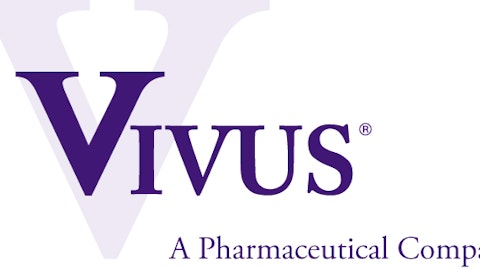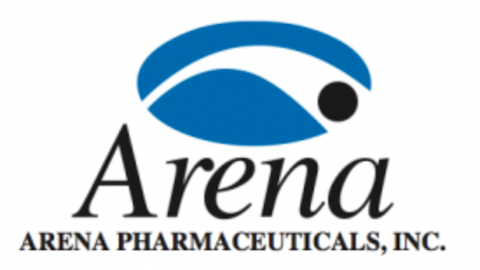
A Look Back At Recent History
Arena Pharmaceuticals, Inc. (NASDAQ:ARNA) rose 700% and VIVUS, Inc. (NASDAQ:VVUS) climbed by more than 250% in the year prior to July 2012. Both companies saw FDA approvals near the same time, which then triggered a very abrupt downtrend.
Since July 2012, VIVUS, Inc. (NASDAQ:VVUS) has fallen 44%, and Arena Pharmaceuticals, Inc. (NASDAQ:ARNA) by nearly 35%, as sales expectations have fallen just as rapidly. In addition, each company had its own fair share of problems.
Shared Revenue on a Bad Product
Arena Pharmaceuticals, Inc. (NASDAQ:ARNA)’s Belviq was the first FDA-approved weight loss drug, but launched several months behind Qsymia. Arena is partnered with Eisai, and only receives up to 35% of total sales. Therefore, Arena Pharmaceuticals, Inc. (NASDAQ:ARNA)’s July 2012 market cap over $2 billion has trickled lower, as the market realizes that a portion of sales does not justify such a large valuation.
Moreover, Belviq is not that effective; Consumer Reportsstated that patients should “skip it” and to “eat less and exercise”. Such a report can be crippling to a consumer product, which is evident by the slow growth of Belviq prescription sales.
High Costs & Expensive Restrictions
VIVUS, Inc. (NASDAQ:VVUS)’ Qsymia faced problems from the very start, as a warning for expected mothers or those taking birth control kept it out of retail pharmacies. Since Qsymia caused birth defects, it had to be sold in specialty phamas. In addition, VIVUS, Inc. (NASDAQ:VVUS) could not market the product nationally.
One bright spot is that Vivus has worked with regulators on these restrictions, and now finds itself in 8,000 pharmacies. This could lead to higher sales, and should boost awareness and increase insurance coverage. In fact, Qsymia does work about three times better than Belviq at producing weight loss. But its ingredients can be prescribed separately, and for just a fraction the cost.
Not Meeting Expectations, and Facing New Competition
When Belviq and Qsymia were first approved, investors were optimistic. Obesity is the number one health risk in America, which creates a large market opportunity for both Belviq and Qsymia. Yet competition with OTC drugs and questions regarding the two drugs’ efficiency quickly squashed those aspirations of large stock gains.
Clearly, the perception and the outlook for Belviq and Qsymia has changed. But strangely, Orexigen Therapeutics, Inc. (NASDAQ:OREX) has maintained its momentum, and is trading flat since July 2012. In the year prior to July 2012, Orexigen produced gains of 250%. Therefore, Orexigen Therapeutics, Inc. (NASDAQ:OREX) has maintained a two-year 250% return, while VIVUS, Inc. (NASDAQ:VVUS) and Arena Pharmaceuticals, Inc. (NASDAQ:ARNA) have traded significantly more volatile.




